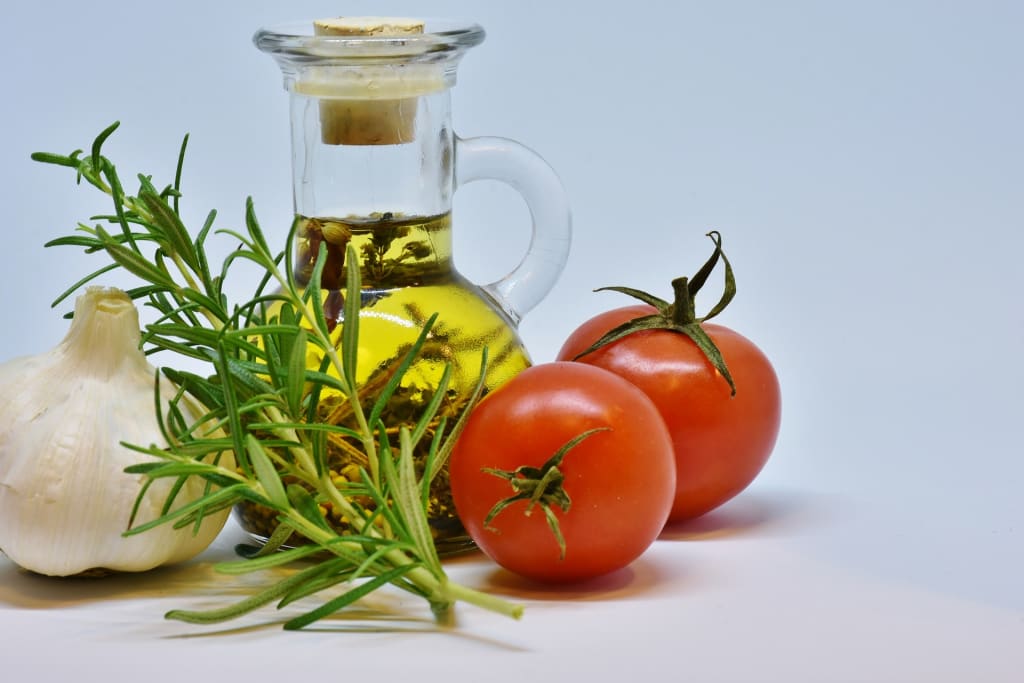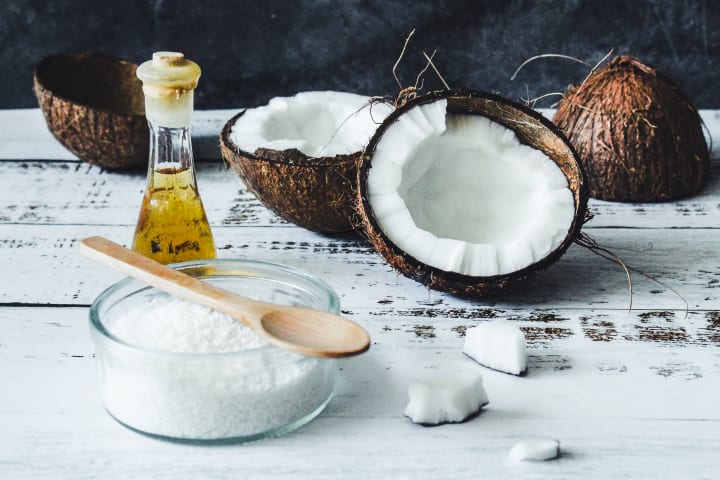Cooking with Confidence: The Daily Dilemma of Choosing the Perfect Oil.
Top 7 cooking oils and how to use them.

Cooking oils play a pivotal role in our daily culinary endeavors, not only enhancing the flavors of our favorite dishes but also significantly impacting our health. The market is saturated with a wide array of cooking oils, each boasting unique flavors and nutritional profiles. In this article, we will explore the best cooking oils for good health and determine which one stands out as the best choice for daily use.
Olive Oil: Liquid Gold for Your Health
When it comes to cooking oils, olive oil is often heralded as a superstar for both its exceptional flavor and numerous health benefits. Extracted from the fruit of the olive tree, this oil is rich in monounsaturated fats, particularly oleic acid, which has been linked to a reduced risk of heart disease.
Olive oil is also brimming with antioxidants, primarily vitamin E and polyphenols, which help combat inflammation and oxidative stress in the body. It has also been associated with a lower risk of stroke, improved cholesterol levels, and even potential cancer prevention.
Extra virgin olive oil (EVOO) is the highest quality and least processed form of olive oil. It is obtained by cold-pressing the olives, preserving its natural flavor and health-promoting compounds. EVOO is an excellent choice for drizzling over salads, dipping bread, and light sautéing due to its relatively low smoke point.
Coconut Oil: A Controversial Choice
Coconut oil has garnered both praise and criticism in recent years. It is predominantly composed of saturated fats, which traditionally have been associated with an increased risk of heart disease. However, coconut oil contains a unique type of saturated fat called medium-chain triglycerides (MCTs), which may offer some health benefits.
MCTs are easily digestible and have been shown to increase metabolism and promote weight loss. They may also have potential benefits for brain health, particularly in individuals with certain neurological disorders. Nevertheless, it's essential to consume coconut oil in moderation and as part of a balanced diet due to its high saturated fat content.
Coconut oil is an excellent choice for high-heat cooking methods, such as frying and roasting, as it has a high smoke point and imparts a delightful coconut flavor to dishes. However, it may not be the best option for daily use due to its saturated fat content.

Avocado Oil: Creamy and Heart-Healthy
Derived from the creamy flesh of avocados, avocado oil is another nutritious option for daily cooking. It is rich in monounsaturated fats, primarily oleic acid, which supports heart health by reducing LDL cholesterol levels and improving overall lipid profiles.
Additionally, avocado oil is packed with vitamins and minerals, including potassium and vitamin E. Potassium helps regulate blood pressure, while vitamin E acts as a potent antioxidant, protecting cells from oxidative damage.
Avocado oil has a high smoke point, making it suitable for a wide range of cooking methods, including sautéing, frying, and grilling. Its mild flavor and creamy texture make it an excellent choice for salad dressings and marinades as well.
Canola Oil: A Neutral and Versatile Option
Canola oil is derived from the seeds of the canola plant and is known for its neutral flavor and versatility in cooking. It is low in saturated fat and contains a favorable balance of omega-3 and omega-6 fatty acids, making it heart-healthy.
The high smoke point of canola oil makes it suitable for various cooking methods, including frying and baking. Its mild flavor allows it to blend seamlessly into both sweet and savory dishes. While canola oil is a decent option for daily use, it's essential to choose a high-quality, non-genetically modified (non-GMO) variety to reap the full benefits.

Grapeseed Oil: A Light and Heart-Friendly Choice
Grapeseed oil is extracted from the seeds of grapes and is prized for its mild flavor and high smoke point. It is primarily composed of polyunsaturated fats, including omega-6 fatty acids, which may have cardiovascular benefits when consumed in moderation.
This oil is rich in vitamin E and contains antioxidants like proanthocyanidins, which help combat free radicals and promote overall well-being. Grapeseed oil's neutral taste makes it a versatile option for sautéing, frying, and baking, allowing it to seamlessly integrate into a wide range of recipes.
Flaxseed Oil: The Omega-3 Powerhouse
Flaxseed oil is a nutritional powerhouse, primarily due to its exceptionally high omega-3 fatty acid content. Omega-3s are essential for heart and brain health, and flaxseed oil provides a plant-based source of these vital nutrients.
However, flaxseed oil has a low smoke point and is sensitive to heat and light, making it unsuitable for cooking at high temperatures. Instead, it is best used as a finishing oil for drizzling over salads, vegetables, or dishes after they have been cooked.
Sunflower Oil: A Balanced Choice
Sunflower oil is extracted from sunflower seeds and is renowned for its balanced composition of polyunsaturated and monounsaturated fats. It is a good source of vitamin E and contains antioxidants that contribute to its overall health benefits.
Sunflower oil has a relatively high smoke point, making it suitable for frying, sautéing, and baking. Its mild flavor allows it to complement a wide variety of recipes. Opt for high oleic sunflower oil for a healthier option, as it has a higher concentration of monounsaturated fats.

Quick & Easy High Protein Vegan Recipes!
Choosing The Best Oil For Daily Use
Selecting the best cooking oil for daily use ultimately depends on your specific dietary needs and culinary preferences. Here are some key considerations to help you make an informed choice:
Heart Health: If promoting heart health is a top priority, olive oil, avocado oil, and canola oil are excellent options due to their high monounsaturated fat content.
High-Heat Cooking: For frying, roasting, and grilling, coconut oil, avocado oil, and canola oil are suitable choices due to their high smoke points.
Omega-3s: If you want to increase your omega-3 intake, consider adding flaxseed oil to your diet. However, use it as a finishing oil, not for cooking.
Versatility: Canola oil and grapeseed oil are versatile and can be used in a wide range of recipes due to their mild flavors and high smoke points.
Nutritional Balance: Sunflower oil offers a balanced profile of polyunsaturated and monounsaturated fats, making it a good overall choice.
In the world of cooking oils, there isn't a one-size-fits-all answer for the best choice for daily use. Your selection should align with your dietary goals, cooking methods, and personal preferences.
However, if you're seeking a versatile option that provides both exceptional flavor and a host of health benefits, extra virgin olive oil stands out as a top contender. Its rich monounsaturated fat content, antioxidant properties, and mild flavor make it an excellent choice for daily use in a variety of culinary applications. Remember that moderation is key, and it's essential to maintain a balanced diet to ensure your overall health and well-being.
About the Creator
Amanda Bennett
Stay At Home Mom Who Loves To Walk The Beach And Share My Treasures With The World!! Making A Mess With the Munchkins And Spending Time With My Family!!






Comments (1)
I love oil! Sometimes all I eat is the oil! Oil is delicious!